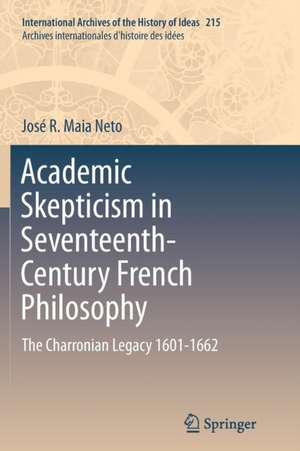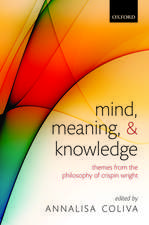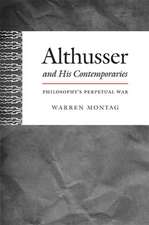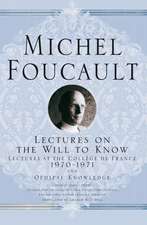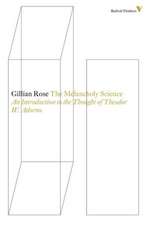Academic Skepticism in Seventeenth-Century French Philosophy: The Charronian Legacy 1601-1662: International Archives of the History of Ideas Archives internationales d'histoire des idées, cartea 215
Autor José R. Maia Netoen Limba Engleză Paperback – 17 sep 2016
| Toate formatele și edițiile | Preț | Express |
|---|---|---|
| Paperback (1) | 381.43 lei 6-8 săpt. | |
| Springer International Publishing – 17 sep 2016 | 381.43 lei 6-8 săpt. | |
| Hardback (1) | 388.72 lei 6-8 săpt. | |
| Springer International Publishing – 29 iul 2014 | 388.72 lei 6-8 săpt. |
Din seria International Archives of the History of Ideas Archives internationales d'histoire des idées
- 24%
 Preț: 679.96 lei
Preț: 679.96 lei -
 Preț: 385.84 lei
Preț: 385.84 lei -
 Preț: 380.25 lei
Preț: 380.25 lei -
 Preț: 382.36 lei
Preț: 382.36 lei -
 Preț: 382.18 lei
Preț: 382.18 lei -
 Preț: 381.43 lei
Preț: 381.43 lei -
 Preț: 380.45 lei
Preț: 380.45 lei - 18%
 Preț: 1223.74 lei
Preț: 1223.74 lei -
 Preț: 379.68 lei
Preț: 379.68 lei -
 Preț: 399.29 lei
Preț: 399.29 lei - 18%
 Preț: 950.03 lei
Preț: 950.03 lei -
 Preț: 385.08 lei
Preț: 385.08 lei - 18%
 Preț: 953.20 lei
Preț: 953.20 lei - 15%
 Preț: 648.24 lei
Preț: 648.24 lei - 15%
 Preț: 641.03 lei
Preț: 641.03 lei - 18%
 Preț: 954.93 lei
Preț: 954.93 lei - 18%
 Preț: 944.19 lei
Preț: 944.19 lei - 15%
 Preț: 643.00 lei
Preț: 643.00 lei - 18%
 Preț: 1830.80 lei
Preț: 1830.80 lei - 18%
 Preț: 1224.54 lei
Preț: 1224.54 lei - 15%
 Preț: 644.63 lei
Preț: 644.63 lei - 15%
 Preț: 633.53 lei
Preț: 633.53 lei - 15%
 Preț: 647.08 lei
Preț: 647.08 lei - 18%
 Preț: 1233.06 lei
Preț: 1233.06 lei -
 Preț: 390.25 lei
Preț: 390.25 lei - 18%
 Preț: 945.92 lei
Preț: 945.92 lei - 18%
 Preț: 951.91 lei
Preț: 951.91 lei - 18%
 Preț: 1219.63 lei
Preț: 1219.63 lei - 15%
 Preț: 638.24 lei
Preț: 638.24 lei - 18%
 Preț: 1223.43 lei
Preț: 1223.43 lei
Preț: 381.43 lei
Nou
Puncte Express: 572
Preț estimativ în valută:
73.00€ • 75.92$ • 61.09£
73.00€ • 75.92$ • 61.09£
Carte tipărită la comandă
Livrare economică 15-29 martie
Preluare comenzi: 021 569.72.76
Specificații
ISBN-13: 9783319381886
ISBN-10: 3319381881
Pagini: 177
Ilustrații: XII, 165 p. 1 illus.
Dimensiuni: 155 x 235 x 10 mm
Greutate: 0.26 kg
Ediția:Softcover reprint of the original 1st ed. 2014
Editura: Springer International Publishing
Colecția Springer
Seria International Archives of the History of Ideas Archives internationales d'histoire des idées
Locul publicării:Cham, Switzerland
ISBN-10: 3319381881
Pagini: 177
Ilustrații: XII, 165 p. 1 illus.
Dimensiuni: 155 x 235 x 10 mm
Greutate: 0.26 kg
Ediția:Softcover reprint of the original 1st ed. 2014
Editura: Springer International Publishing
Colecția Springer
Seria International Archives of the History of Ideas Archives internationales d'histoire des idées
Locul publicării:Cham, Switzerland
Cuprins
Chapter 1: Introduction.- Chapter 2: Charron’s Academic Skeptical Wisdom.- Chapter 3: Gassendi’s Attack on Dogmatic Science.- Chapter 4: La Mothe Le Vayer’s Attack on Belief and Superstition.- Chapter 5: Descartes’s Rehabilitation of Science.- Chapter 6: Pascal’s Rehabilitation of Christian Faith.- Chapter 7: Conclusion.- Bibliography.- Index Nominum.
Recenzii
“It was refreshing to read a history of the development of philosophy in the first half of the seventeenth century that focused on topics that are important to everyone—wisdom, humility, freedom—and not merely interesting to professional philosophers. … Many readers, not just specialists in the history of skepticism, will derive much benefit and enjoyment from reading Maia Neto’s work.” (Michael W. Hickson, International Journal for the Study of Skepticism, Vol. 08 (2), 2018)
Notă biografică
José R. Maia Neto is Professor of Philosophy at the Universidade Federal de Minas Gerais, Belo Horizonte, Brazil. He has published Machado de Assis, The Brazilian Pyrrhonian (Purdue U. P., 1994) and The Christianization of Pyrrhonism: skepticism and faith in Pascal, Kierkegaard and Shestov (Kluwer, 1995). With Richard H. Popkin, he edited Skepticism in Renaissance and Post-Renaissance Thought (Humanity Books, 2004) and Skepticism: an anthology (Prometheus Books, 2007). With Gianni Paganini, he edited Renaissance Scepticisms (Springer, 2009) and with Paganini and John Christian Laursen, Skepticism in The Modern Age: building on the work of Richard Popkin (Brill, 2009). He has published many articles and chapters on early modern skepticism in English, French and Portuguese.
Textul de pe ultima copertă
This book is the first systematic account of Pierre Charron’s influence among the major French philosophers in the period (1601-1662). It shows that Charron’s Wisdom was one of the main sources of inspiration of Pierre Gassendi’s first published book, the Exercitationes adversus aristoteleos. It sheds new light on La Mothe Le Vayer, who is usually viewed as a major free thinker. By showing that he was a follower of Charron, La Mothe emerges neither as a skeptical apologist nor as a disguised libertine, as combatting superstition but not as irreligious. The book shows the close presence of Charron in the preambles of Descartes’ philosophy and that the cogito is mainly based on the moral Academic self-assurance of Charron’s wise man. This interpretation reverses the standard view of Descartes’ relation to skepticism. Once this skepticism is recognized to be Charron’s Academic one, it is seen not as the target but as the source of the cogito. Pascal is the last major philosopher for whom Charron’s wisdom is crucially relevant. Montaigne and Descartes influenced, respectively, Pascal’s view of the Pyrrhonian skeptic and of the skeptical main arguments. The book shows that Charron’s Academic skeptical wise man is one of the main targets of his projected apology for Christianity, since he considered him as a threat and counter-example of the kind of Christian view of human beings he believed. By restoring the historical philosophical relevance of Charron in early modern philosophy and arguing for the relevance of Academic skepticism in the period, this book opens a new research program to early modern scholars and will be valuable for those interested in the history of philosophy, French literature and religion.
Caracteristici
First systematic account of Charron's influence among major French Philosophers First book to show that Academic skepticism was more relevant than Pyrrhonism in Early Modern Philosophy Provides new research for early modern scholars in philosophy, French literature and religion Includes supplementary material: sn.pub/extras
